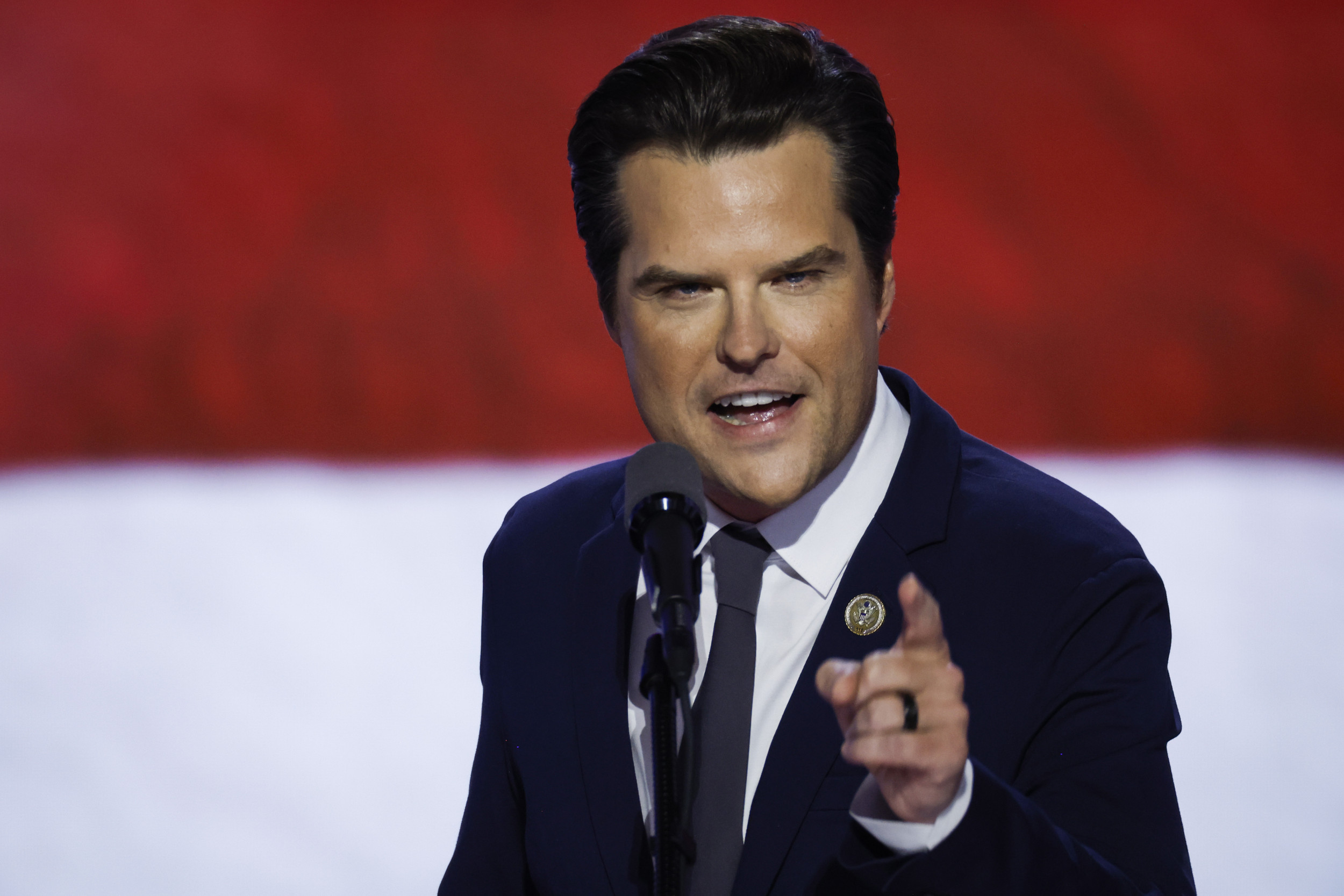Manhattan District Attorney Alvin Bragg recently claimed that the murder of the UnitedHealthcare CEO earlier this month "was a killing that was intended to evoke terror." And now prosecutors have charged the shooter, Luigi Mangione, with terrorism. This cold-blooded execution on a New York City street in broad daylight was a shocking act of violence. But does it meet the threshold of terrorism?
Political scientists have debated to death the definition of terrorism. And still there is no consensus. The terrorism scholar Alex Schmid spent decades researching the elusive definition of terrorism and concluded that the "search for an adequate definition is still on." He and other scholars such as Walter Laqueur have identified hundreds of terrorist definitions.

This lack of consensus is understandable because the term terrorism is not value-neutral. Governments around the world apply the word terrorism instrumentally to isolate and discredit their enemies at home and abroad. In authoritarian countries such as China, Egypt, and Turkey, even peaceful political dissidents risk being treated as terrorists. Democracies, too, are sometimes guilty as well, such as when the mob of Donald Trump supporters were called terrorists for unsuccessfully trying on Jan. 6, 2021, to influence the presidential election outcome at the Capitol.
Disagreements between countries also abound to serve their geopolitical interests, as reflected in the current international debate over whether Hayat Tahrir al-Sham (HTS) in Syria should be de-listed as a Foreign Terrorist Organization given its savvy public relations campaign to re-brand itself away from its Al-Qaeda roots. These kinds of international disagreements are hardly new. In its zeal to combat Zionists, Iran has long described Hezbollah as a legitimate resistance group whereas the United States, Israel, and some European capitals view the "Party of God" as terrorists.
Governments may even revoke the terrorism label when geopolitical circumstances change. Historically, the United States regarded the Kurdistan Workers' Party, or PKK, as a terrorist group given its bloody attacks in Turkey for Kurdish independence. But when the United States came to rely on the Kurdish-led Syrian Democratic Forces against Islamic State in Syria, Washington brushed aside Turkish objections of their alleged PKK ties.
That said, there is more definitional disagreement between countries than terrorism scholars who typically consider an act terrorism when it meets three criteria.
At least in theory, a violent act is considered terrorism when perpetrated by a non-state actor against a civilian target for a political goal. That means a lone wolf, small cell, or larger organization using violence rather than a proper army; a soft target like a synagogue or school rather than a tank or military base; in pursuit of a cause like national self-determination, a caliphate, or Communist revolution rather than because of mental health problems, a personal dispute, or selfish reasons such as greed.
All available evidence indicates that the suspect, Mangione, acted alone with no ties to a government or organization. Mangione could thus be understood as a "lone wolf." The victim of the attack was also a private citizen walking around in Manhattan and therefore clearly a non-combatant target. And the motive was perhaps political. Mangione had undergone spinal surgery a year earlier for chronic back pain. The handwritten note found after Mangione was detained as a suspect in the murder of UnitedHealthcare CEO Brian Thompson referenced "parasites" in the health care system who "continue to abuse our country for immense profit because the American public has allowed them to get away with it."
But a political motive could certainly be clearer. Noticeably absent from the "manifesto" is any articulation of a desired political, social, or religious goal. Mangione doesn't call for the overthrow of the U.S. political system, an end to capitalism, or anything of the sort. He seems to have been motivated in part by anger over his continued chronic back pain after the spinal surgery. There are at least questions about how this pain could have impacted his mental health.
In other terrorist attacks, the perpetrators were much clearer about their intended political aims. In 2013, Boston Marathon bomber Dzhokhar Tsarnaev carved his message into wooden slats of a boat in which he was hiding: "Stop killing our innocent people and we will stop." The perpetrators of the December 2015 shooting in San Bernardino posted a pledge of allegiance to the leader of the Islamic State prior to committing their act of terrorism that killed 14 people. Similarly, Omar Mateen, the gunman behind the 2016 Pulse nightclub attack, spoke to a 911 dispatcher and said he was committing the attack for the leader of Islamic State. In cases such as these, the terrorist motivation leaves less to the imagination with little question about whether the violence was purely criminal in nature or was in furtherance of some broader cause.
In our assessment at this time, the Mangione case has closer parallels to the 2010 attack on an IRS building in Austin, Texas. In that case, the perpetrator, Andrew Joseph Stack, deliberately flew his plane into an IRS field office, killing himself and an IRS manager. Before the attack, Stack also left behind a manifesto in which he discussed his financial difficulties, hatred of big business, and personal conflicts with the IRS and the tax code. Despite calls to label this a terrorist attack, the FBI and other local police officials considered it a purely criminal matter.
Currently, it appears that Mangione was perhaps motivated more by anger toward a system than a desire to affect political change. Anger, however, motivates all sorts of crimes that are not considered terrorism. It is possible more evidence will emerge during the investigation and trial that shows a clearer political motive for the attack. But right now, this murder is not a clear-cut case of terrorism even though it shares several constitutive elements.
Either way, Mangione will likely have plenty of quiet time to process whatever it is the tragedy was intended to achieve.
Max Abrahms is a tenured professor of political science at Northeastern University.
Joseph Mroszczyk is an assistant professor at the U.S. Naval War College.
The views expressed in this article are the writers' own.




















 English (US) ·
English (US) ·